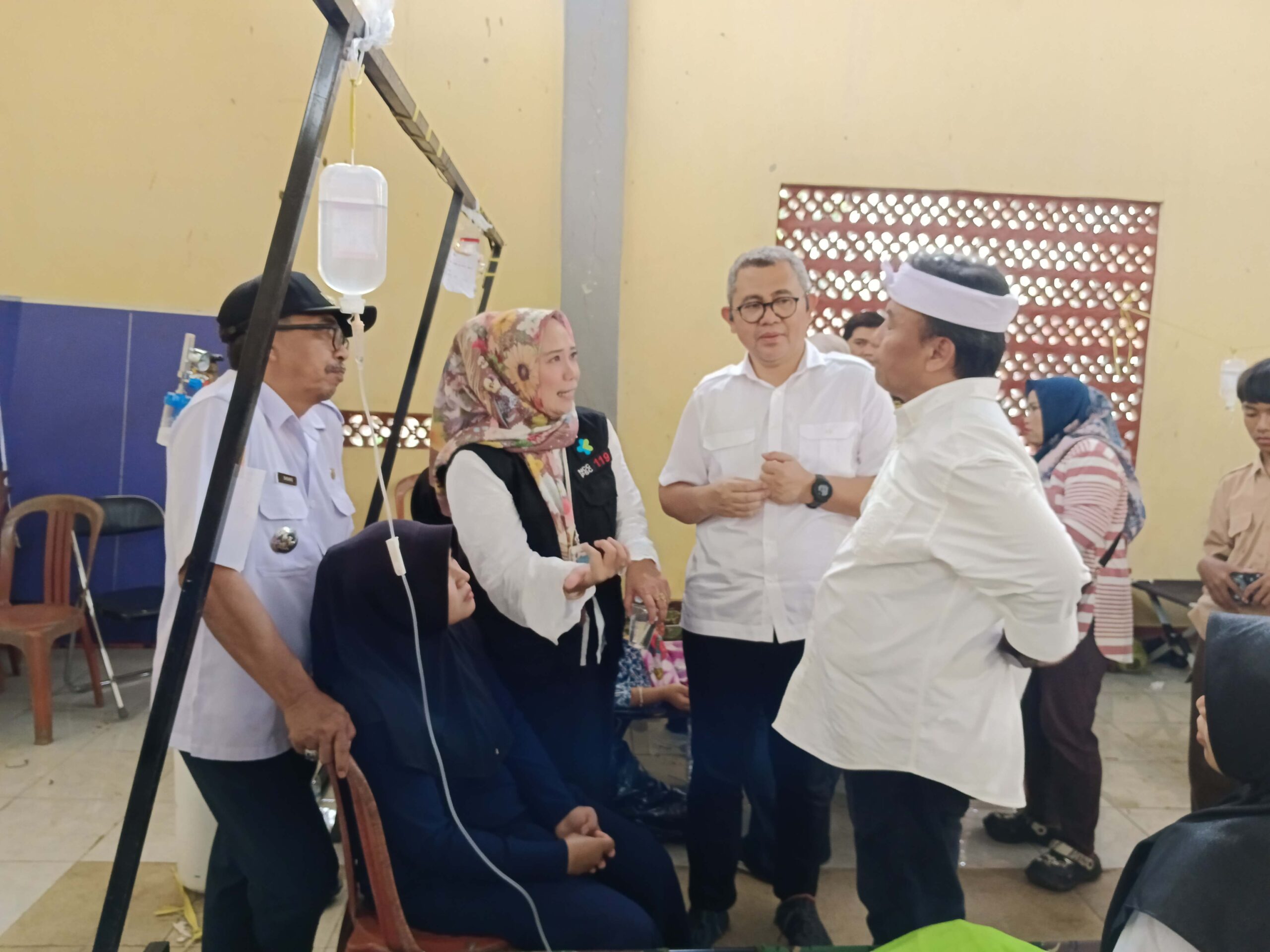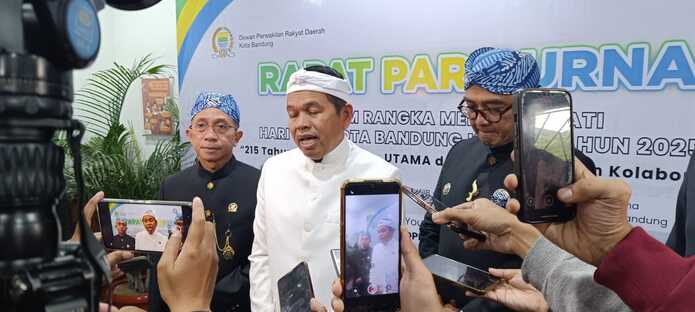Governor Dedi Mulyadi will summon the heads of the West Java representatives of the school meal service providers to conduct a comprehensive evaluation.
“Next Monday, we will evaluate the MBG program by summoning the head of the West Java MBG representative,” said Dedi after attending a plenary meeting at the Bandung City DPRD.
The evaluation will focus on kitchen cleanliness, food ingredient quality, as well as the timeliness of cooking and food distribution. This is because indications were found that the process from cooking to delivery did not meet standards.
“If cooking is done at 00:00 and then delivered at 12:00, that is too long and risks reducing quality,” explained Dedi.
The distance between the kitchen and the school, as well as the number of service recipients, is also considered to need attention. Services that exceed the provider’s capacity can impact the quality of food received by students.
“No one can cook such large quantities every day. Therefore, the quantity must also be reduced,” he clarified.
He emphasized that the decision to continue or terminate cooperation with the food service providers will be discussed in Monday’s meeting.
“The provider’s commitment is crucial. A child who has experienced poisoning could be traumatized and reluctant to eat again. Therefore, nutrition and safety must be thoroughly checked,” he added.
This poisoning case is receiving serious attention, as the number of affected students continues to rise, although some have received medical treatment.
The government hopes this evaluation step can restore public trust and prevent similar incidents from recurring.
“Until now, there are still victims falling ill. However, many have also recovered,” he concluded.

West Java Regional Secretary, Herman Suyatman, commented on the continuation of the Free Nutritious Meals program in his region.
This follows the poisoning incident in the Regency which affected hundreds of school students in Cipongkor and Cihampelas Districts.
He stated that the poisoning incident in the Regency has been reported to the National Nutrition Agency (BGN) as the authority holder for the program.
“Regarding that, we will report it to BGN because the authority lies with BGN. It is clear that the West Java provincial government supports this program,” he said.
He added that the report to BGN is a follow-up to the incident concerning technicalities and a number of shortcomings during the distribution of the program so far.
“Regarding technicalities, if there are shortcomings and such, it must certainly be based on an evaluation regarding its nutritional content, its hygiene, and other factors,” he said.
Furthermore, he said that the follow-up from the report to BGN regarding this poisoning will later result in an appropriate decision.
“We will report it to BGN, then we will wait; regarding this issue, the government will later make the appropriate decision,” he said.
He affirmed that his office is ready to oversee and ensure the success of the program. However, beforehand, they will provide input based on the incident that occurred.
“We from the West Java Provincial Government are ready to oversee and succeed the government’s program, but with feedback from the field,” he said.
“The information should come directly from the children, from the parents. We must be wise, we must be smart, we must not provide hoax information; it must be based on data, it must be comprehensive,” he said.
He affirmed that his office will immediately conduct lab tests to determine the exact cause of the poisoning incident that affected students.
“We are also conducting lab tests regarding the content of this menu, which were sent to the laboratory on Monday,” he stated.





